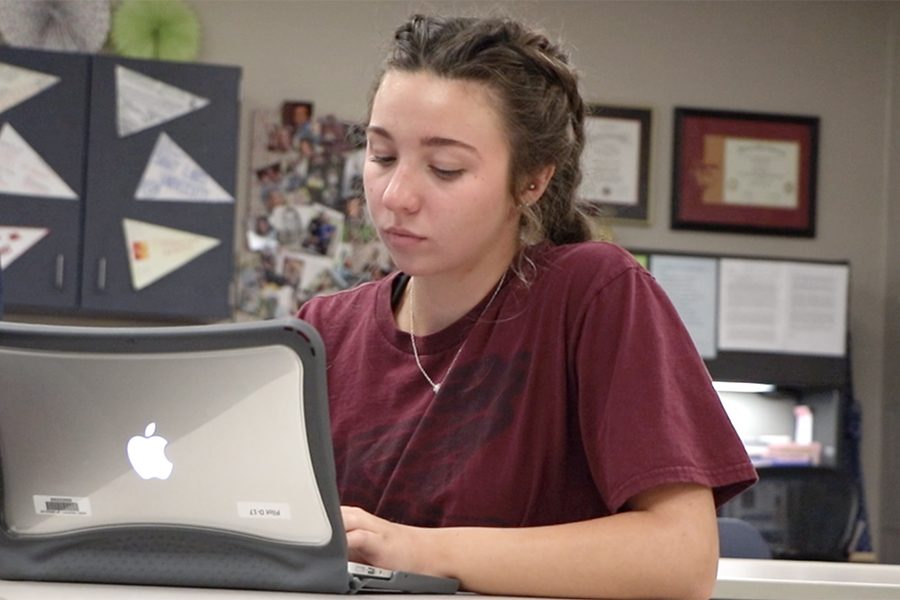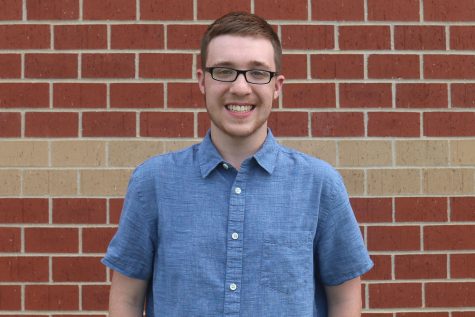Board of Education approves move to One-to-One
Next school year students in grades 6-12 will receive a MacBook Air and students in grades K-2 will receive iPads
During the one-to-one pilot testing, senior Nicole Wieschhaus test’s out a MacBook Air by taking notes on the device. Next year every student will have the option to use this device in school.
April 25, 2019
The Board of Education approved the acquisition of more computers on Monday, March 18, so that the district can become one-to-one with technology. After meeting with teachers and looking through survey data from 3,700 students, the district will purchase MacBook Airs for all students in grades six through 12 and iPads for students in grades K-2. While the change will not take place right away, the district is hoping to roll out the devices to students early next school year.
For freshman Taylor Doyle, who got to test all of the devices in her English class, the districts decision to choose MacBooks will be beneficial for the students.
“I think my entire English class can agree that we are fighting for the MacBooks,” Doyle said. “They weren’t hard to use at all and they really benefited our class.”
On the other hand, sophomore Zachary Botkin felt the district should have invested in PCs.
“MacBooks are inefficient,” Botkin said. “They are more confusing to use, more expensive for less power and are overall not as good as a PC.”
English teacher Ashley Agre is excited about how the devices will affect her class.
“I am excited as an English teacher to go one-to-one because writing essays in class, and being able to do some vocabulary games, research and things like that will be much more convenient because I don’t have to move the laptop carts,” Agre said. “I am anticipating next year [will be] an interesting year [trying to integrate] the technology but overall I think it will be a good thing.”
According to director of curriculum Joe Kelly, the devices will help to make the classroom more streamlined.
“There will be less time [spent] dealing with problems related to logging in because the device being implemented is being checked out to the individual student,” Kelly said. “When students need to use that technology, all they have to do is take it out of their backpack and it just starts right up.”
Botkin feels the program, while well-intentioned, will be ineffective.
“I feel that although the district is trying to get in line with common standards in teaching, I believe that it will be implemented poorly into the curriculum as an afterthought as opposed as to a new way to teach,” Botkin said.
While Agre is excited about the program, she is worried about how to deal with technology problems.
“I am interested to see if a kid’s laptop breaks what do we do, if they don’t bring it to school what do we do,” Agre said. “[Next year] we will have to figure everything out.”
Although the devices are checked out to the students, Kelly wants students to remember they still have to be responsible.
“Something people should be aware of is that the devices, even though they are checked out to the student, still do belong to the district,” Kelly said. “We want students to feel like they can use the device and that they can store files on it but we also want them to be responsible and want them to know that we still are enforcing the same rules that we have in the handbook.”










